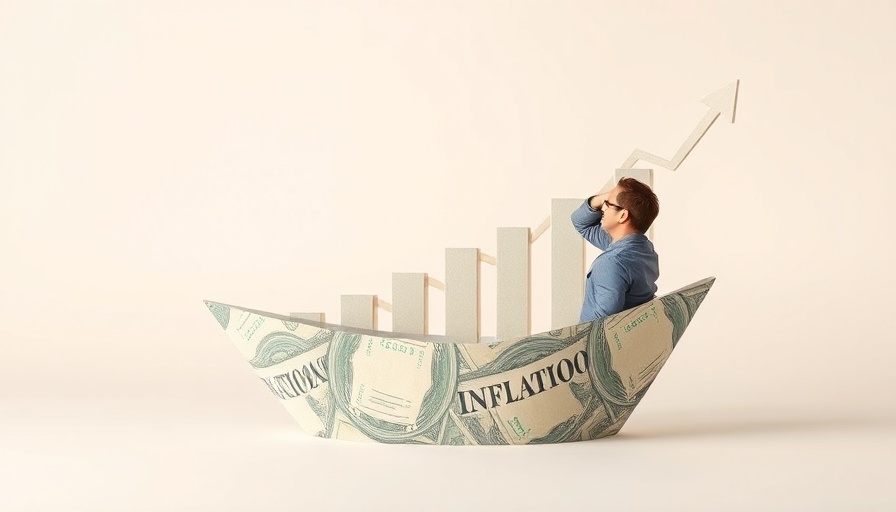
Nigeria's Inflation Surge: Understanding the Numbers
Nigeria recently reported a headline inflation rate of 34.80% for December 2024, marking a significant uptick that raises many questions for economists and consumers alike. Major contributors to this inflation increase include rising food and transport costs, which have burdened the Nigerian populace. In November, food inflation was recorded at 39.93% and slightly eased to 39.84% by the end of December. This slight reduction indicates that while food prices remain critically high, there are signs of marginal improvement.
Economic Insights and Future Predictions
Analyst Samuel Onyekanmi from Norrenberger provides a cautious outlook on inflation for 2025, suggesting that consumers may see some relief later in the year, with expectations that rates could lower to between 25% and 27%. However, this forecast comes with many caveats. The landscape of inflation is complicated by the recent rebasing of the consumer price index (CPI), which has evolved from tracking 740 goods and services to 960, reflecting an adjustment in consumption patterns.
The Impact of Rebasing on Consumer Perception
This rebasing initiative is vital for accurately understanding how inflation affects everyday consumers, especially since food represents a substantial portion—cut down to 40.1% from 51.8% in the CPI basket. Experts like Ayo Andrew Anthony, Head of Price Statistics at Nigeria's National Bureau of Statistics (NBS), emphasize that these changes aim to enhance data reliability. But how will this affect public sentiment? For many, these adjustments might signal a change in the cost of living and consumer confidence.
Balancing Economic Adjustments Against Consumer Needs
The recent GDP rebasing, coupled with CPI reweighting, is an attempt to capture a more accurate picture of Nigeria's economic activities, as articulated by economist Olajide Oyadeyi from Econoday Inc. These technical adjustments could lead to more accurate planning for businesses and government initiatives, which in turn could provide better infrastructure and services necessary for stimulating growth amidst high inflation. However, the challenge will be ensuring these measures resonate positively with the average consumer who continues to face daily economic struggles.
A Call for Transparency and Responsiveness
The disclosures of new inflation metrics expected by January 2025 may yield new insights into Nigeria's economic future. It is essential for policymakers to be transparent about these changes and how they impact both businesses and individual households. Building trust with the public while addressing their needs will be crucial for steering the country towards a more stable economic environment.
As Nigeria navigates these economic challenges, the interplay between statistical adjustments and genuine consumer experiences will be pivotal. Understanding this dynamic is vital for tech entrepreneurs who can use data and innovation to provide solutions that address these pressing issues and enhance consumer trust in economic policies.
 Add Row
Add Row  Add
Add 




Write A Comment